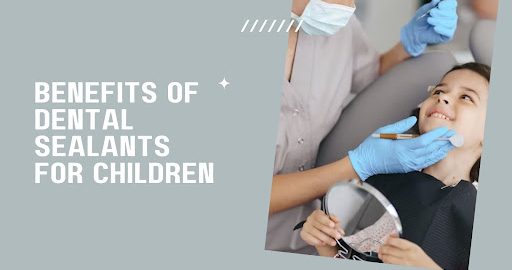
What Are the Benefits of Dental Sealants for Children
Growing and developing necessitates molding, and a healthy child does so by keeping a clean mouth. Besides brushing and flossing are part of oral hygiene but there’s another preventive measure which might be extremely helpful in securing their own dental health: dental sealants.
Dental sealants are thin protective coatings applied to the chewing surfaces of the back teeth. In the following blog, we discuss the various advantages of dental sealants for kids, such as the prevention of tooth decay, savings on dental treatments, and longer lifespan of oral health.
Prevention of Tooth Decay
The most common major dental issue encountered by young people is tooth decay. It occurs mostly in the molar and premolar areas because these surfaces are mostly rough and jagged-edged. Dental sealants basically act like a cover that shields those weak areas from bacteria and food accumulation, which most of the time causes decay.
This sealant material is put on the pits and fissures of the teeth, thereby sealing off the very deep grooves, which are hard to reach for cleaning with a toothbrush alone. As children have their teeth sealed, this means filling up crevices that could be openings for unwanted bacteria, providing them with the ease of proper oral health and less chance for cavities.
This sealant is usually applied to permanent molars shortly after the teeth erupt, usually between ages 6 to 12 years. In some cases, sealants may also be useful for baby teeth if the child is most at risk for tooth decay. It is quite fast and painless with no hurt so that it can be considered as a safe preventive measure for children.
Cost-Effective Solution
With dental sealants, parents can spare quite a sum of money in the future when they will be seeking treatments for their teeth. Most of the treatments for dental caries and cavities are costly, especially if a number of teeth have been involved. Dental sealants prevent the development of cavities and, therefore, is a very cost-effective measure.
Sealants have been shown to significantly reduce tooth decay among children up to an 80 percent rate in the first two years after application, the Centers for Disease Control and Prevention reported. As a preventive measure against fillings, root canals, and other restorative services, dental sealants can help diminish the financial burdens of dental car
Long-Term Oral Health Benefits
Application of dental sealants is the most important first step towards teaching children good oral health habits. Dental sealants protect molars and premolars from decay and keep them healthy for a longer time, helping in proper chewing, speech development, and keeping enough space for showing up the permanent teeth properly.
Sealing would also be a reason that encourages children to take better care of their oral health as it gives them a feeling of responsibility and the need to take proper care for their mouth. Once the children watch for the outcome from the sealants, such as when no cavities have been developed; the children will try to begin practicing proper oral hygiene to avoid repeating the same mistakes. This takes place through brushing and flossing regularly with dental check-ups and cleanings on a regular basis.
Conclusion
Sealants on children’s teeth are an excellent investment in their oral health as they have a number of benefits. In that regard, by preventing tooth decay, sealants protect vulnerable chewing surfaces of the back molars from future attack, thus lowering the risks of cavities and the subsequent expensive dental treatments. They might save the parent money in dental care when they check the case over time. In addition, dental sealants contribute to the long-term oral health of children, encourage proper chewing, improve speech and articulate sounds, and help them develop good oral hygiene habits.
As a parent, you would surpass just dental wellness for your child with the availability of dental sealants. Talk to your child’s dentist whether or not they can recommend sealants on your child’s dental health situation. With dental sealants, your child shall take home a healthy smile that lasts their lifetime. Prevention is always better than cure when it comes to oral health!
Leave a Reply
Leave a Reply
Explore More Similar Posts
Explore More Blogs


Leave a Reply